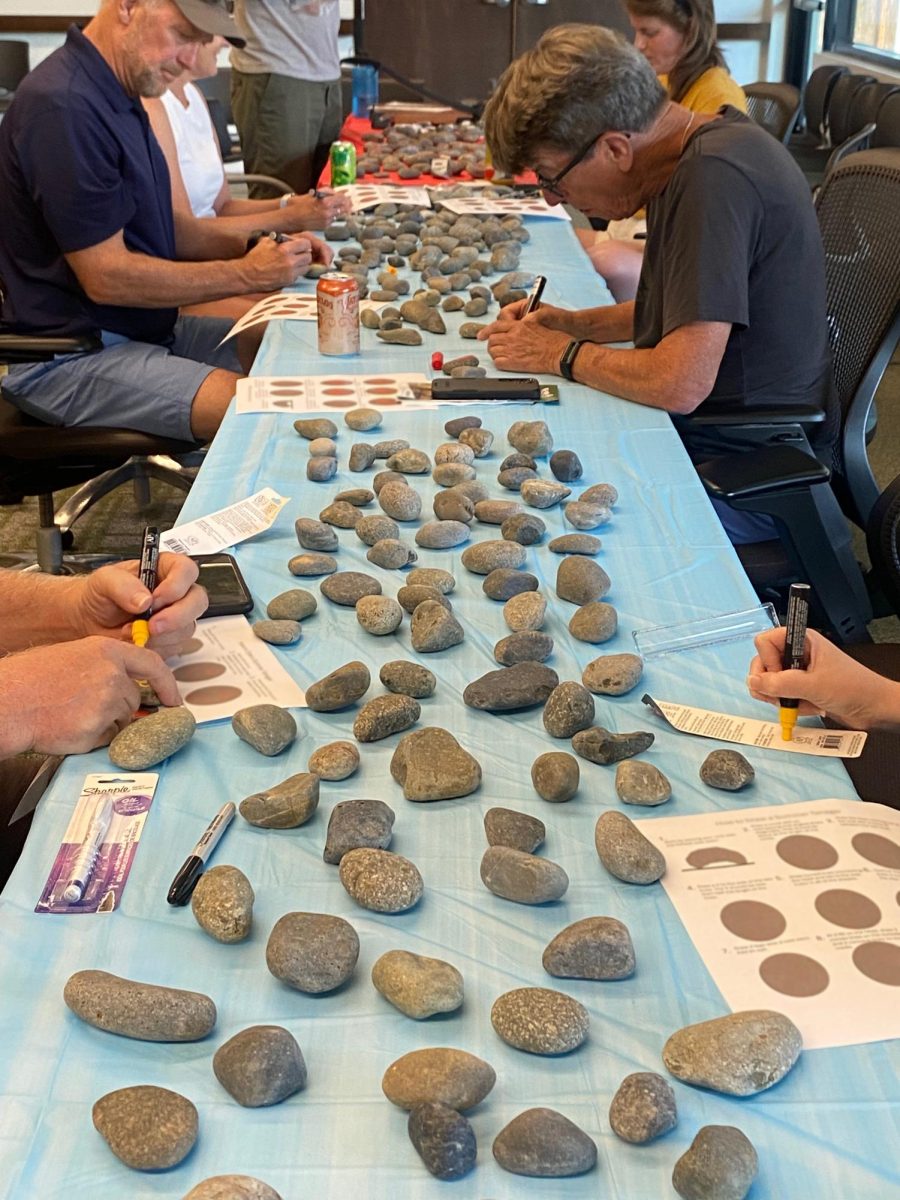A St. Louis County Circuit Court judge last week dismissed a lawsuit filed by neighbors of a new trail extension through Cliff Cave County Park.
The judge, David Lee Vincent III, previously denied the Oakville neighbors’ petition for a temporary restraining order.
The Great Rivers Environmental Law Center filed the lawsuit March 6 against St. Louis County, County Executive Steve Stenger, 6th District County Councilman Ernie Trakas and every member of the council alleging that the project illegally circumvented council approval.
In his ruling, Vincent found that the Oakville neighbors have no standing to file suit to stop the trail by suing the county because the county is not funding the project.
“The mere filing of this lawsuit does not confer ‘taxpayer standing’ upon the plaintiffs that would have allowed them to sue the defendants,” Vincent wrote. “Because plaintiffs’ allegations in the first amended petition fail to show St. Louis County’s direct expenditure of funds for the project, the plaintiffs lack standing to bring this lawsuit, the court lacks jurisdiction over this matter, and this case must be dismissed.”
The three New England Town neighbors who brought the lawsuit through Great Rivers Environmental will pay court costs, Vincent added.
The residents, Kenneth Elliott and Joan and Nick Steska, live along Cliff Cave Road directly across from a new upper parking lot and bathroom that will be built for the new trail.
Standing could only be conveyed if the county directly spent tax dollars on the trail, increased taxes to fund it, or the neighbors suffered a loss “attributable to the challenged transaction,” the judge wrote.
But the $5 million trail and $500,000 in design costs are funded by regional trail district Great Rivers Greenway, or GRG, which developed the project, Vincent said.
Trees cleared for trail
All the trees have been cleared after construction kicked off in late February on the 2-mile paved loop in Cliff Cave, similar to Grant’s Trail. The path will wind up and down the bluffs from a trailhead on Cliff Cave Road and could end at a pedestrian-only entrance at Telegraph and Erb roads pending a safety study a county contractor is set to conduct this summer.
GRG hired an Oakville-based contractor, Ideal Landscape, as the primary project contractor.
The trail has been in the works by Great Rivers Greenway for years. The trail district builds projects in St. Louis County and city and St. Charles County and hopes to link Cliff Cave to other parks and trails as part of its Mississippi Greenway.
Funds for the project are from a sales tax approved by voters in 2013 widely known as the “Arch tax.”
In affidavits filed along with the lawsuit, the Steskas and Elliott say the trail will affect the aesthetics of the view from their houses and the animals — deer, red foxes, turkey and birds — that they’ve seen for decades outside their windows, where GRG plans the new parking lot.
“If the construction is not stayed, I will suffer immediate irreparable loss in that trees will be removed that will take decades to regrow,” Elliott wrote. “The loss of these trees will destroy the wildlife habitat living there, and will take away the views that my wife and I enjoy.”
Trakas holds bill for months
GRG held two packed open houses last year on the project and downsized the upper parking lot by 50 percent in response to the Steskas’ concerns.
The project first appeared on the council agenda Jan. 3 at Trakas’ first meeting after being sworn in Jan. 1.
The new councilman held the bill, which was an operations and maintenance agreement for the trail, until he could meet with nearby residents a month later.
County officials later sent an agreement with the Metropolitan Sewer District to lay a sewer line to the proposed bathroom.
As a hard March 1 deadline approached to either kick off construction or delay it by a year due to endangered bats coming out of the caves to nest in the trees slated to be cleared for the trail, Trakas told county and GRG officials that he would only support the project if they added a pedestrian bridge at the Telegraph and Erb entrance, or abandoned the idea of that entrance entirely.
County Parks Director Gary Bess announced the project would move forward without Trakas or the council’s approval.
The operations agreement did not require council approval, and the sewer line was rerouted, officials said.
Trakas worked with Stenger to come to a compromise that would allow the Cliff Cave side of trail construction to start pending the safety study.
The county has already sent out requests for qualifications for contractors to conduct the study this summer.
At previous hourlong hearings held in open court March 7 and March 13, Vincent listened to repeated arguments from County Counselor Peter Krane that the county did not pay for the project, while Great Rivers Environmental attorney Kathleen Henry made the case that the county would have to spend county funds on maintenance for the planned bathroom and parking lot.
Hearing held in chambers
The judge handed down his prewritten ruling at a 30-minute hearing he held in his chambers.
It was a move that took the Great Rivers attorneys by surprise, because they viewed the hearing as a routine motion hearing, not the potential end of their case.
“We are disappointed in the court’s ruling,” Henry said outside the courtroom.
At press time, Henry and the other attorney working on the case, Bob Menees, had not yet decided whether to appeal Vincent’s decision.
They were waiting to make a final decision on an appeal until they get paperwork from a Sunshine Law request to the county.
“It begs the question of who has the ability to challenge illegal action,” Menees said. “County Counselor Krane said that voters could speak at the ballot box, but if those people who live by the park can’t challenge it, the county can get away with it.”
The Steskas and Elliott argued in their case that the county illegally circumvented the council to get the trail constructed, bypassing the normal protocol between GRG and the county when the trail district wants to build a trail and the county maintains it.
Documents that the county delivered to the law firm through legal discovery indicate that the previous seven times in recent years when GRG has built a trail in a county park, the council approved an operations and maintenance agreement.























